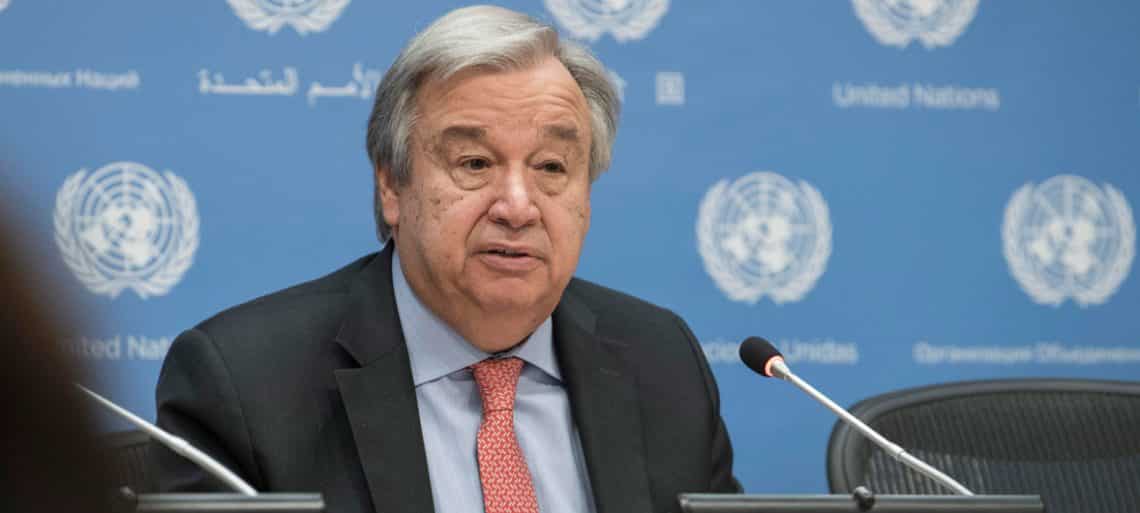By Veritas
To date, there are now more than two and a half million people who have tested positive for Corona Virus in the world and over one hundred and eighty thousand deaths. In Zimbabwe, the official numbers stand at twenty-eight positives and four deaths. On the 22nd of April 2020, the United Nations Secretary-General (SG) Antonio Guterres gave a video update on the global situation. In his update, he highlighted concerns over how countries are dealing with the pandemic and trying to protect citizen rights at the same time.
The Secretary General’s Speech
The address by Antonio Guterres had one goal in mind – to persuade countries to reconsider how they are currently dealing with the epidemic. The Secretary-General introduced a policy brief on how human rights can and must guide the COVID-19 response and recovery efforts of countries around the world. The brief is titled “COVID-19 and Human Rights – We Are All in This Together”.
The Secretary-General took the time to flag how the pandemic has highlighted cracks in world systems and called for necessary adjustments to be made in order to remedy the cracks. He mentioned how the outbreak of COVID-19 has shown us who is suffering the most, why, and what can be done about it.
Without calling out or mentioning any particular nations, the Secretary-General said that now, more than ever is the time for countries to be transparent, responsive, and accountable.
He specifically mentioned the importance of press freedom in these times and encouraged governments to observe this right. Lastly, he emphasized the importance of States of Emergency to be legal, proportionate, and only take necessary measures which will do the least amount of harm to the citizens.
COVID-19 and Human Rights – We Are All In This Together
First and foremost the policy brief outlined what has been dubbed “frontline human rights”. These rights include life, health, access to health, and freedom of movement. The report shows how such rights are the cornerstone of society yet in one way or another they have been challenged due to the pandemic the world now faces. The biggest challenge being of that of freedom of movement. The report notes how things have changed; how the children of today have had their education affected more than any other group in history; and how food security has been given a whole new meaning by the crisis.
It is highlighted in bold that effective and generalised testing and tracing can actually help mitigate the need for placing more restrictions on citizens.
The next part of the policy brief shows the effects of the pandemic through maps. For example one of the maps shows that only four countries in the world have their schools open at the moment. The other maps show countries that have taken lockdown measures including border closures, other maps show the number of deaths and countries that have humanitarian response plans, of which Zimbabwe is one.
The next part consists of “Six Key Human Rights Elements”:
1. Protecting people’s lives is the priority; protecting livelihoods helps us do it
2. The virus does not discriminate, but its impacts do
3. Involve everyone in your response
4. The threat is the virus, not the people
5. No country can beat this alone
6. When we recover, we must be better than we were before.
The Six Elements are elaborately explained in the report and map out ways in which countries should go regarding each element.
Overall this policy brief introduced by the Secretary-General should be considered seriously by governments all over the world. The recommendations should be adapted as far as state resources allow and measures to ensure greater transparency and accountability and responsiveness should be taken.






